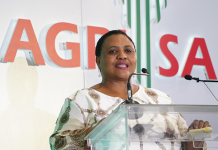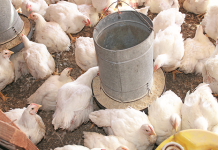I listened to South African Road Agency (Sanral) spokesperson Vusi Mona on the radio recently attempting to justify President Zuma’s signing into law of the Transport Laws and Related Matters Amendment Bill. This now paves the way for e-tolling to start in Gauteng, despite strong public opposition. Of course, we were expecting the president to pass this law. From what I could make out from the interview with Mona, now that the system has been rubber-stamped,
Gauteng road-users must just keep quiet and pay up. He made it sound as if R100 to R450 added to road-users’ monthly expenses was nothing, and implied that people who drove cars could easily afford it. It seemed, to him, that paying e-tolls meant being patriotic and supporting the country’s progress.
Mona said that the money raised through e-tolls would be used for the wellbeing and development of all South Africans. It would be invested in infrastructure development which, at the end of the day, would benefit everyone. He added that if people did not pay these tolls, we would ultimately not have a country to leave to our children.
It has also been reported that Sanral has apparently approached the Department of Justice with a request to establish special courts where e-toll offenders could be prosecuted. I cannot comprehend that Sanral truly believes that the collection of e-toll fees is more important than prosecuting other, more serious crimes.
Struggling with taxes and prices
Although I understand some of Mona’s reasoning, I cannot ignore the fact that South Africans are already heavily taxed and burdened with high food and fuel prices. Obviously, this toll will create yet another financial demand on consumers. But how true is Mona’s contention that the money is needed to develop the country’s infrastructure? Does the national treasury really not have adequate funds to undertake infrastructure development without making taxpayers fork out even more?
Every year, the auditor-general’s office paints a dark picture of how our tax monies are being disbursed. We also need to keep in mind that state departments in this country have spent about R102 billion on consultants in the past three years. These people perform the jobs of government employees who are being paid salaries to do the same work.
Ministers are also not ashamed of splashing out on official cars, costing as much as R1 million each. Then there is the cattle kraal being built at a cost of R1 million, and security upgrades of more than R200 million at a certain private home. In Limpopo, agricultural infrastructure worth millions of rands stands unused, and no one seems to care. And, the list goes on and on…
So you see, Vusi, I find it very difficult to believe you when you say the only way we can afford infrastructure development is by demanding more money from taxpayers. I cannot understand why I need to pay more when government fails to use its finances responsibly.
Eventually, South Africa’s citizens will become truly fed up, and that will not be a pretty picture!












